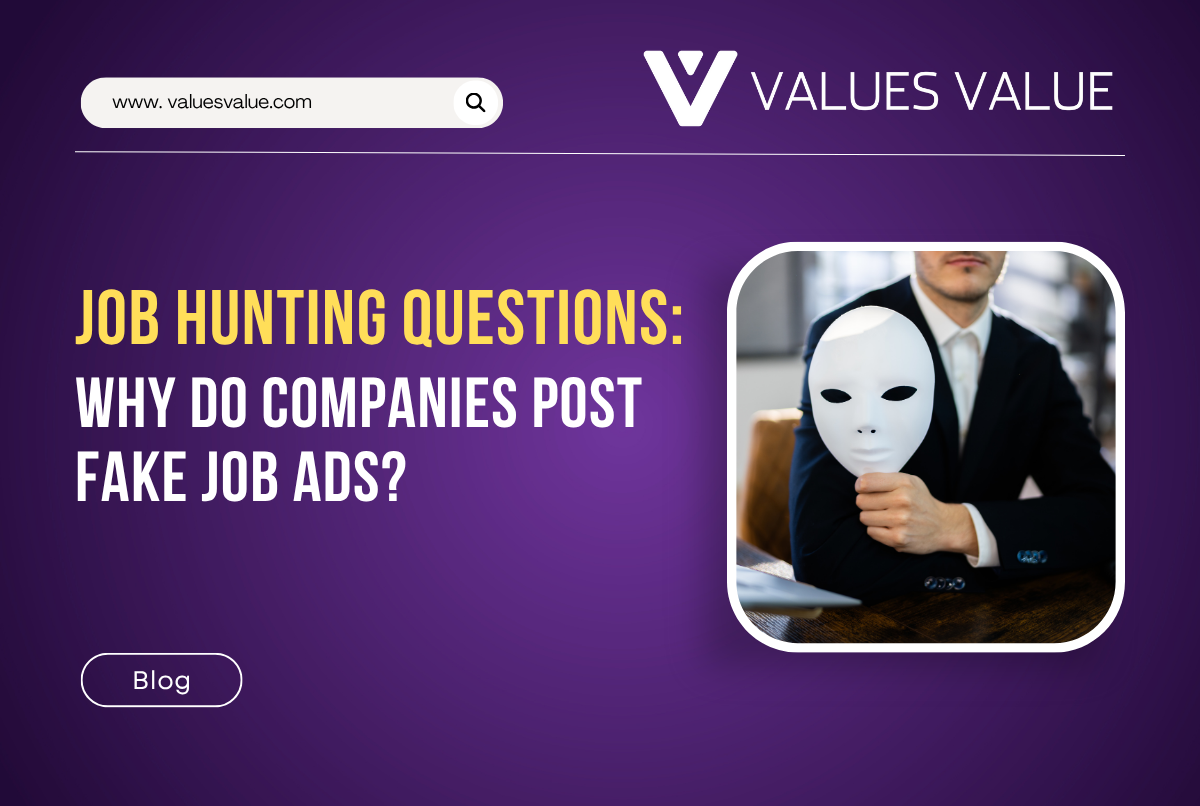
If you’ve been job hunting for a while, you’ve probably come across job postings that feel… off. You apply, but never hear back. The role stays open for months. Or maybe it looks too good to be true. You might be dealing with a fake or inactive job posting.
So why do companies post jobs that don’t seem real — and what happens if you apply?
Why do companies publish fake or inactive job ads?
There’s not always ill intent behind it. Here are the most common reasons:
1. Building a talent pipeline. The company may not be hiring right now, but wants to collect strong profiles for future openings.
2. Market research. They might be testing the market: how many candidates are out there? What salary ranges are expected? What skills are in demand?
3. Employer branding. Some companies use job ads to stay visible and signal growth — even if they’re not actively hiring.
4. Recruiting agency tactics. Agencies often post generic or speculative job ads to attract candidates they can later match to open roles — not always with transparency. This is not a practice we follow at Values Value. We only publish real, active job openings with the consent of the hiring company.
5. Poor internal coordination. A role may have been filled or frozen, but the posting was never removed.
How to spot a fake or inactive job posting:
- The ad has been live for months with no updates.
- The job description is very vague or overly broad.
- You’re a strong fit but get no response at all.
- The posting sounds unrealistically perfect — top salary, full flexibility, dream project, no trade-offs.
- There’s little or no info about the team, product, or company structure.
What happens if you apply?
Don’t worry — nothing terrible will happen. But here’s what to expect:
- You might never get a reply (and waste your time).
- Your CV could end up in a database “for later”.
- In some cases, the role isn’t real — but they might still contact you for other purposes (networking, talent mapping, etc.).
Who tends to do this?
- Recruiting agencies — especially if they’re trying to “build a bench” or gather leads.
- Outsourcing & service companies — they may post openings based on expected or upcoming contracts, not current needs.
- Product companies? Less common — but it can happen if hiring plans change fast and no one updates the listings.
What you can do
If you’re unsure, try this:
- Ask directly: “Is this an active opening or part of future hiring plans?”
- Check LinkedIn: is anyone new hired for that role? Are employees engaging with the post?
- Track your applications: if you see patterns, you’ll learn to recognize the red flags.
Fake job ads exist — sometimes for strategy, sometimes by mistake. It’s not your fault. Stay curious, ask questions, and don’t take silence personally.
Have you ever applied to a job that turned out to be inactive or fake? How did you find out?
